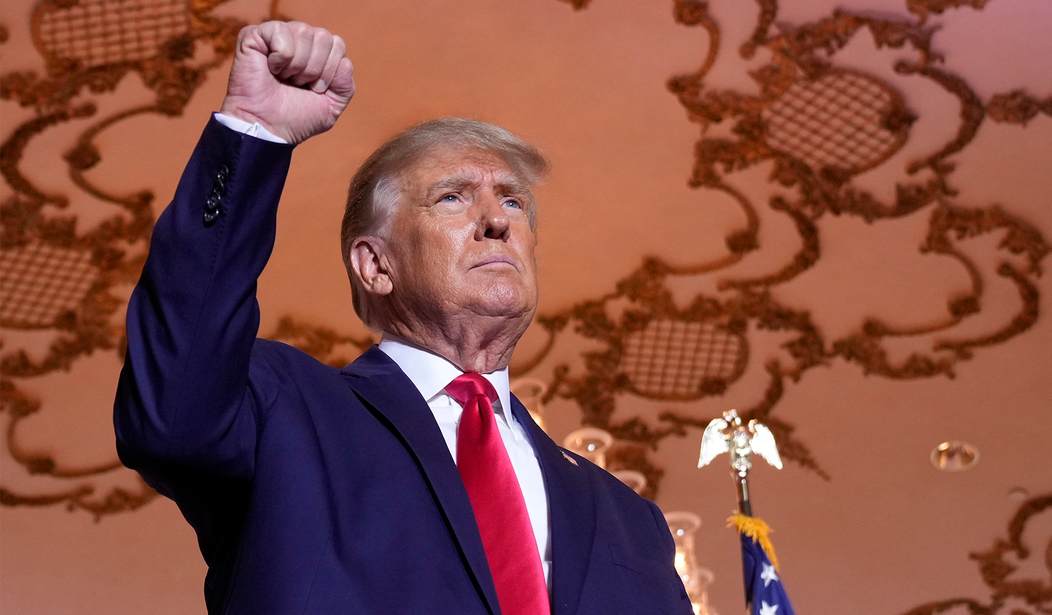The Fulton County special grand jury finished its work this week. The grand jury was authorized to investigate whether or not former President Donald Trump and his allies illegally meddled in the 2020 presidential election in Georgia. What’s the next step?
The Fulton County grand jury was comprised of 23 members and 3 alternatives. Fulton County DA Fani Willis requested the grand jury and it was greenlit by the Fulton Superior Court a year ago. Twenty judges approved the request from Willis. The task before the grand jury was to “investigate any and all facts and circumstances relating directly or indirectly to alleged violations of the laws of the State of Georgia.” They had the power to subpoena evidence and witness testimony. The did not, however, have the power to issue indictments.
So, after an eight month investigation the panel has been dissolved. Fulton Superior Court Judge Robert McBurney issued an order on Monday stating that the grand jury fulfilled its duties to his satisfaction. The majority of Superior Court judges who reviewed the special grand jury’s final report agree with his decision.
Now the question is whether or not the grand jury’s final report should be released to the public. The grand jury members are in favor of releasing it.
The grand jury’s final report, known as a special presentment, is expected to include a summary of its findings. It may also contain recommendations on whether anyone should be indicted, if a majority of jurors can agree.
The final decision on whether to press charges, however, ultimately rests with Willis, who would need to present evidence before a separate, regular grand jury that has the power to indict.
There has been no comment from the Fulton DA’s office. Trump’s Georgia attorney, Drew Findling, also has not responded publicly.
Normally when we think of grand jury testimony, we think of it being behind closed doors and not for public consumption. It’s secret testimony. I had the honor of sitting on a grand jury once (though not in Georgia) and that is certainly what we were told at the time. So, making a final report public information seems sketchy. This grand jury heard from some high profile people.
Jurors were selected in May and began hearing witness testimony behind closed doors in June. The group questioned many of the state’s top elected officials, including Gov. Brian Kemp, Attorney General Chris Carr, Secretary of State Brad Raffensperger and the late House Speaker David Ralston, as well as dozens of others. It also successfully fought for testimony from some of Trump’s top confidantes, such as his former personal attorney Rudy Giuliani, U.S. Sen. Lindsey Graham and ex-White House Chief of Staff Mark Meadows.
As it turns out, special grand juries are rare in Georgia, so there is little legal precedent for special presentments. The final report is expected to become public at some point. However, McBurney can opt to keep it sealed until the case is over, which could be months or maybe even years. There will likely be appeals to Georgia’s high courts. And, if McBurney does decide to release the final report, portions of it could be redacted until a later time.
Kevin Riley, Editor of the Atlanta Journal-Constitution plans to ask the Fulton Superior Court to make the presentment public.
“The special grand jury’s work has been a matter of national and local importance,” he said. “The report offers a clear view into the process, and its availability will increase the public’s trust in our system of justice.”
DA Willis launched the investigation in February 2021. The investigation was originally into Trump’s leaked phone conversation with Brad Raffensperger, the Georgia Secretary of State. In that conversation he allegedly pressured Raffensperger to “find” 11,780 votes, the amount that counting the ballots showed Trump came up short in the 2020 presidential election in Georgia. Since then, the investigation expanded.
The probe has since expanded to include: other calls Trump and his associates placed to Georgia officials after the election; the appointment of a slate of “alternate” Republican electors in December 2020; falsehood-laden testimony Giuliani and others gave to Georgia legislators in December 2020; efforts to pressure a Fulton County poll worker to admit to election fraud; the abrupt resignation of Atlanta-based U.S. Attorney Byung “BJay” Pak in January 2021; and the breach of elections data in Coffee County in January 2021.
Willis previously told state officials that her office was probing potential violations of Georgia law including criminal solicitation to commit election fraud, intentional interference with the performance of election duties, conspiracy and racketeering. Legal experts with the Brookings Institution think tank said other crimes that might have been committed include false certification, influencing witnesses and computer trespass.
These kinds of investigations always seem to start in one place and end up somewhere else. In this case, at least 18 people have been told they are targets of the investigation and that they could see charges. Those include Rudy Giuliani and the alternate GOP electors. The biggest question is whether or not Willis will seek to indict Trump. She’s up for re-election next year.
“I don’t want you to think I’m naïve or I don’t get the gravity of the situation,” Willis told The Atlanta Journal-Constitution last spring. “I get the gravity of it. … But it’s just like every other case. You just have to do your due diligence.”
No sitting or ex-president has ever been charged with a crime. Many critics of Trump think this is the best chance to hold Trump accountable for trying to undermine the peaceful transfer of power. We’ll keep an eye on what happens next in this case.








Join the conversation as a VIP Member